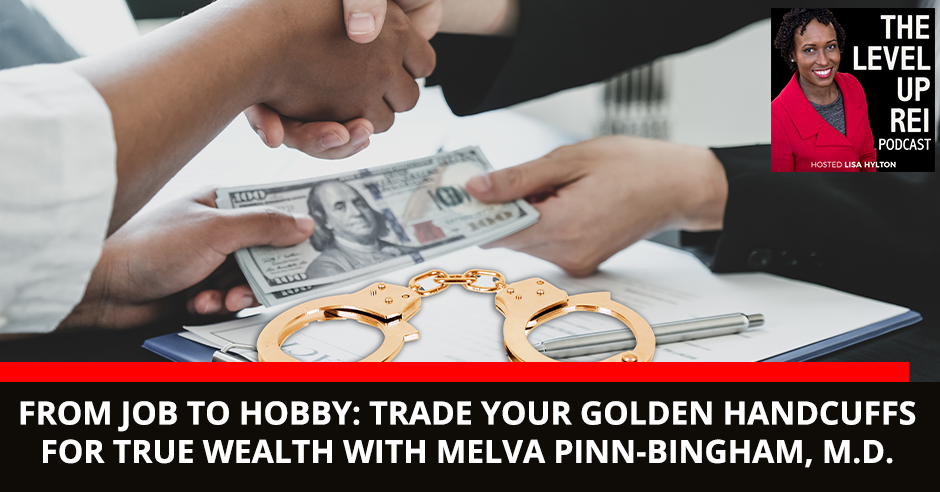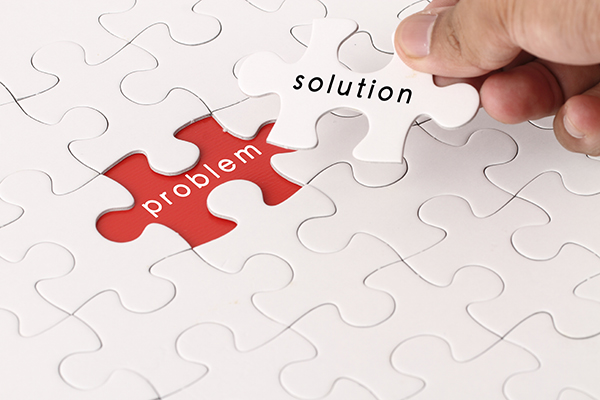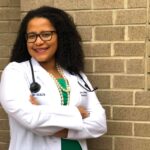
If you have golden handcuffs, whether you love your career or not, you need to have a backup plan. You have to diversify your portfolio to achieve true wealth. Lisa Hylton introduces Melva E. Pinn-Bingham, M.D., a Radiation Oncologist and Mentor who helps professionals create multiple income streams. Dr. Melva talks with Lisa about how you need to leverage the connections and opportunities available to you that other people don’t have. Find resources to fund your investments. Reach out to people with the status to help you reach your financial goals. If you want to learn more about achieving true wealth, you wouldn’t want to miss this episode. Tune in!
—
Watch the episode here
Listen to the podcast here
From Job To Hobby: Trade Your Golden Handcuffs For True Wealth With Melva Pinn-Bingham, M.D.
I’m excited to bring you another amazing guest. Her name is Melva Pinn-Bingham. She is a board-certified Radiation Oncologist, serial entrepreneur and investor. Through her online private community, The 1% Code Collective, she provides strategies for top-income earners to create multiple streams of income to support the career they want to love. She’s also the host of the podcast, The One Percent Code podcast. Welcome to the show. I appreciate you coming on.
Thank you so much for having me on.
I’m so excited to have you on and for those of you reading, Melva and I met through some of the Facebook groups. I was in there connecting with people, networking, building relationships, and lo and behold, I ran across her profile and I was blown away by your profile and your podcast. It spoke to me. I was like, “Who is this person? They’re talking to me here.”
I hope that this episode talks to you because our theme of this episode is going to be turning your job into a hobby and trading your golden handcuffs for true wealth. If that didn’t bring you in, we’re going to bring you in now. Let us get started with how did you start on your journey of seeing that you were in golden handcuffs, or maybe you didn’t see that? What inspired you to do The One Percent Code Podcast and to do the things that you’re doing now?
I heard that term usually after our conversation with another high-earning income professional, whether that was another physician or not. We’d be talking about the day and things that had happened, and then we talk about the reality of what action we are not taking. We’re not letting go of the salary of something we’ve worked for. Many of us are still paying student loans. It was the concept of the golden handcuffs. I’m a solutions person. If there’s a problem, I’m looking for a solution.
The solution was, if you have golden handcuffs, whether you love your career or not, you have to have a backup plan. You have to have diversification of your wealth portfolio. Otherwise, you’re stuck going to work whether you love it or not. That was what inspired me. It was several conversations. It was the realization that, “These are golden handcuffs. This is a high salary. If I don’t show up to work, I don’t get paid.”
I’m moving off track, but I’m going to get back on track a little bit. My readers always know that my show is broken into three parts. We have the background, then we get into the meat of the episode and then we close things down with the level-up questions. To get things started, can you share with my readers where in the US do you and your family live?

True Wealth: You need to leverage the connections and opportunities available to you that other people don’t have.
I’m originally from Charlotte, North Carolina, and we live in Chesapeake, Virginia, which is about 30 minutes from Virginia Beach, three hours from DC and I practice in rural North Carolina.
What do you and your family like to do for fun?
We like business. My husband and I have known each other since the ninth grade. We were best friends. We dated for twenty years. I graduated med school, got married. We started our families. Our kids love driving for dollars for real estate investing. They love looking at businesses for the opportunity and we’ll be driving in the car, and they’re like, “This would make a good storage unit.” For fun, we like spending time together outside of the business and numbers. Now we’re in sports season heavily. My son’s playing travel baseball. My daughter follows after my husband for basketball and then the middle is a softball. That’s what we like to do, hanging out, but the kids are part of our business ventures, sometimes a little too much.
I’m going to circle back to your children, but first, I wanted to tackle your decision to practice in rural Virginia. Can you talk about why you decided to make that decision? Was that influenced by your entrepreneurial spirit in any way?
I was on the Duke Black Alumni Networking events, speaking on the healthcare panel with some other fabulous guests. A lot of us talked about the progressions that you have in life and the evolution. For me, it was a part of the evolution of my career. As a super-specialized sport-certified radiation oncologist, you’re limited. I have to be in places that have entire teams.
We have physicists, dosimetrists, quality reviews, national guidelines. It’s radioactive sources, and you can’t put that anywhere. You have a certificate of needs and states. The limitations geographically and financially, it was a wake-up call after my first job out of residency when things weren’t pretty. I was the youngest, the newest person on the totem pole at the time. That’s when I decided to have my son and I left that job, 36 weeks pregnant, because it was bad. It was malicious dealt with sexism, racism issues.
As the youngest person, I was commuting to multiple clinics. I wasn’t there with my patients and it was enough pain that said, “I’m better than this. I know my value. I know my worth.” The question was, I love being a physician. I know that I have a calling, especially in oncology. How can I do that and how can it align with what other needs I have? For individual practice, having autonomy in my clinic, using the leadership ability, but also being able to have a program that’s developed for the patients that are needed.
If you have golden handcuffs, whether you love your career or not, you need to have a backup plan. Share on XFor me, that was found in rural healthcare. I’ve dedicated the last several years, at least of my career in medicine in the rural setting, because you get those entrepreneurial things, you have flexibility. On the other hand, sometimes it can be emotionally draining with the lack of resources in rural. I’m in rural North Carolina now. I also did medical school here, so I’m familiar with this audience. It can be draining, it can be tough, but it’s that balance of how you can make it work and still work.
Connected to that, listening to your story from there, can you then talk about how you’ve leveraged the income to then build your other entrepreneurial streams, some of the things that you, your husband and your children have decided to pursue?
I was on another podcast with Dr. Mark Costa. If you haven’t met him, you should have him on your show. He was wonderful. He’s a dentist who owns over ten practices in Arizona. I understand his concept, but I didn’t think about it until you talked about it. The mid-class perception of scarcity mindset around debt. I want to be debt-free. I don’t want to have any debt. The other side of that is the abundance mindset, the entrepreneurial mindset and the 1% code mindset of, “I want to leverage other people’s money, resources and be able to take out loans.” We leveraged our income in terms of the numbers and the connections.
You’re a great networker. You are reaching out to me having a connect call. It reminded me that I hadn’t done that in a while because I got into my little world of work. I have these businesses and I’m a mom of three kids. I was like, “I haven’t done this in a while.” I appreciate that from you but leveraging the income also the status. This is what I tell other physicians and other healthcare workers or six-figure earners is you have to leverage your connections. There are opportunities that you have available to you that other people don’t. I didn’t see that. You don’t see it when you are used to a certain level of success and income, but you have to leverage that and that’s what I teach people my programs other doctors like, “You can go to a bank.”
For me, I started leveraging. We started with a franchise and it was with a bank that’s familiar with the hospital that employs me. They know I’m going to get the check every month, so it was easy. Leveraging your MD and credentials, whatever your credentials may be, leveraging those relationships, getting money, not putting your own there. You have some skin in the game, but it’s not all your skin. I don’t know if that answers your question.
It brings me to some of my other things, which is, you guys have been in a few different franchises now. Can you share how many franchises you and your husband have chosen to embark into?
We are part of the Kahala Franchise and they have a group of 29 or 35 businesses. We’re with Cold Stone Creamery, the brand. We have franchise rights to two locations. One is up and running in Hampton, Virginia, the other one, we’re in the lease negotiation phase, but we have the rights to that. That’ll be in Norfolk, Virginia. It will be the second location in that city. At the end of 2020, we came onto the Subway World Headquarters for Subway location franchise. Those are the two franchises that we’ve been involved in.

True Wealth: Get the duplex and do real estate.
In addition to doing that, you talked about driving for dollars. You guys also invest in real estate.
This has been my husband’s dream since he was a little kid. He used to have those Carleton Sheets videos. We went to the real estate investment and he was a proponent forever. Looking back, I wish I had listened to him. When I finished residency, we had a choice to move into multiple six-figure homes on the golf course versus moving into a duplex and doing those savings. Let’s say I wish we’d moved into that duplex, lived in one, rented out the other one.
Instead, we chose the golf course and at the time, we had a two-year-old and two-month-old. If you can imagine, we didn’t need the golf course. We made a lot of decisions looking back that have shaped our journeys moving forward but if anybody’s reading this and they’re coming out with a high six-figure income, get the duplex.
That brings me to The One Percent Code, your program, and why you decided to create it.
I decided to create this because talking to me, you can probably hear everything that we’ve done. We had a Lil Orbits Mini Donut Machine. We own a Garden Gazebo Gift Shop. That was a franchise. That was when we were nineteen years old. We’ve sold shoes and events. We used to operate 3 or 4 flea markets. We’ve done everything entrepreneurial, and then we’ve evolved to more sophisticated, like multiple six-figure per year franchises and $1 billion corporations.
The reason I started is that I can uniquely add that true entrepreneurial spirit with a professional imposter syndrome that comes up with other top 6 and multi 6-figure, 7-figure income earners who have been in their careers their whole life and they’ve never done these things. They look at me like, “Dr. Melva, how can you do that?” I saw sold roses from Ecuador at Duke University as an undergrad because a football player, he’s a motivational speaker. He should have him on your show, too, LaVar Johnson. He’s awesome. He’d done it the year before he was graduating. He’s like, “This is how you do it. Let’s go.” My husband and I set that business up. I started this, so I could share that entrepreneurial spirit with those people who were my colleagues who were stuck in the golden handcuffs. They had spent everything in their career and they wanted to jump out, but they don’t know how and they don’t have to do the same things that I do. They don’t have to start franchises.
A lot of people want to start a home health care facility. They want to get into a real estate franchise. They do want a food franchise. They want to get their first rental property. It’s the knowledge, mindset and all of the mistakes that I think that we made it through the journey, I want to help other people avoid that.
Money doesn't have to be a struggle to make. Share on XWhat would you say are some of the mindset things that come up for people when they’re seeking to come out of the traditional way of earning money to then building wealth through businesses and passive streams of income?
This one sounds straightforward, but it’s the money mindset. It’s difficult to make money and the association that making money is painful. It takes long. Changing that language into the affirmation of money comes to me easily because when I look back, my main source of income is as a physician and that was grueling.
Sacrifice, missing out on family time, always having to rearrange the schedule for the career. It was hard to make that money versus the next set of multiple six figures that we’ve made. It was much easier. It came down to the fact of building relationships, putting an application and going after an opportunity and it changes. The biggest one is that money doesn’t have to be a struggle to make.
The second one, and for me personally, my strengths and leadership are different than management. A lot of us who are multiple six figures, we have either 1 of the 2. I meet a few people who are good leaders and also good managers. You have to acknowledge where your strengths are and focus on that and I am a big proponent of outsourcing, hiring and partnering with people who have your weaknesses.
For example, as a physician, I’m the leader of the team in an oncology setting. I have people that report to me and I’m the strategist. They know how to do their role, but I usually put it together. What tended to happen early on in the entrepreneurial journey and I’ll be honest, I still have faults with this because I would hire people who were dependent on me versus hiring independent thinkers.
One of my coaches, Kelly Roach, taught me that to go to that next step, whether it’s multiple 6 figures to 7 figure or 7 figure to 8 figure it’s the people. You have to hire people who are smarter than you in areas that you don’t have the expertise. That’s where a lot of people in my position struggle. We don’t know how to hire different people and we think making money is hard.
I can truly resonate with this, especially these two last points which I feel like both of them would be a part of the success strategies. Are there any other ones that come to mind for the success strategies, in terms of what makes people successful as well in addition to these?

True Wealth: If there’s a problem, there’s a solution.
For the longest time, I could figure out what my gift was because I’ve done much, but part of it, I think for success, is that failing. When I was at Duke University undergrad, one of my PhD advisors would go, “Focus, Melba.” I was doing sorority things and multiple activities. He taught me how to be successful with focusing and in buckets almost. You have to be not afraid to fail.
I fail all the time, I start things that I don’t finish and try things that aren’t meant for me. Sometimes, I honestly try them to figure out, like to prove if it works or not and then I tell someone else about it because maybe it’s better for them. The time I did an Amazon drop shipping business. I remember I was doing customer service and they were like, “This is like the best response I’ve ever gotten for a twin set of sheets.” I was like, “Oh.” Maybe as a physician, I don’t need to be doing customer service about a twin set of sheets for a $20 order.
For success, you have to be not afraid to fail. You have to have the right mentorship and network. I’ve had a lot of mentors in my life and I continue to find different as I evolve and switch the verticals of what the focus is. The last thing for success is that you have to continuously work on this imposter syndrome. It doesn’t matter how much you’re making it. It creeps up and you have to be in that environment that it doesn’t stop you because I see it stopping intelligent people. I see it stopping people who make ten times more than I do. You have to acknowledge that concept of imposter syndrome and you have to have a plan to work around it for success.
I want people to know that I met you in a Facebook group. I keep telling people the gems that are available out there in terms of meeting people and unlocking relationships that you would not have had. I hope that resonates because all of this has been amazing. To close things up, I’m going to get into my level-up questions here, which I ask all my guests. The first one is, what are you grateful for in your life now?
I am grateful for the family that I intentionally decided to start at 28 years old and I know that it’s a topic for a lot of people. I was told I didn’t have enough money. I was still in training. It wasn’t the right time but my husband and I had a lot of faith in our plan for a family. I’m also grateful for my parents, brothers, sisters, and remote family because they’ve had many choices and things I know my parents gave up when they were younger. I’m able to do well because of the support of all my family, even my cousins who joined all of my classes or programs. They are there supporting me, watching us, come and have ice cream at the shop. I’m grateful for the family that I have both close, blood and extended.
What has attributed to your success and continuous growth?
I think what’s contributed to my success and continuous growth is fundamentals like the vision and mission. It’s interesting when people meet me, my mom was always telling me from the time I was growing up, as young as I can remember, it was two things I always said, 1) I look for a problem and I thought there was a solution. If I’d find something wrong, there’s a solution. 2) I figured out like, “I can either get the person to do a solution, or I can solve it.”
If you want to succeed, you have to be not afraid to fail. Share on XHaving that mindset, which started in the middle school at that point, there was a kid who kept getting in trouble and we went to the principal. She said, “Unless you have a solution for this kid who keeps getting in trouble in your class and is missing out on going to all these fun activities unless you can solve it, don’t come to me anymore.” That kid never had any more problems because we came up with a reward system and I got the whole class together. That’s how I approach everything in success is that you have to break it down and figure out what’s stopping? What needs to change? Everything is a well-oiled machine at any clinic you’ll be in that I run and it’s because I look at it from a systems perspective.
What do you now know that you wish you knew at the beginning of your journey?
That the world revolves around marketing more and copywriting, I look at the people and their success. The people who have more freedom and are able to do philanthropic work, they have solid money. Either they were inherent to that money, they managed money well, or they made more money. One of those three buckets. A lot of that has to do with the marketing and l putting yourself out there. I don’t think I understood enough about that growing up because, in medicine, you could have a lot of backgrounds.
When I talk to pre-med, I’m like, “Go do something else because you’re going to do medicine the rest of your life if you stay in this field.” I wish I’d spent more time on understanding psychographics, marketing, persuasion and copywriting because that’s the world around us. That’s everything. Even when I’m offering radiation treatment to some who have cancer, it’s some amount of persuasion that what I have, the pros outweigh the cons.
I’m a black belt in taekwondo. I’m a second-degree black belt. I got that when I was younger. There are two steps back is better than one step forward that and that principle led me now in this part of my life. It’s like, “I need copywriting and marketing. I need a marketing team to get my things done.” I don’t know. That’s what I’d say.
Before I let you go, two more things, the one is women and minorities and the interplay with The One Percent Code in terms of what you’ve learned in terms of providing that course. What have you seen in the space of women and minorities when it comes to building wealth and taking some of these actions, leveraging their income and stuff like that?
One, it’s less of us and for me, it seems more. The reason I say that is that when I’m in those circles, as women and minorities, especially in medicine, we make up 2% of physicians. We are constantly talking about these issues and working to change the narrative. Being involved from the back end of what we’re going through in this, I’ve made more of a concerted effort to be around others like me to learn how we can do that. I’m around a lot of phenomenal women and minorities that are building leverage, especially in real estate and in the medical field. It’s not enough.
As younger women are coming through, we’re starting at a much younger age to drop those seeds to say, “This is what’s possible. This is what you can do.” To be honest, that’s another reason that I’m public about a lot of things is that I know there are people who are watching and I know it’s making a difference because I’ll have people come back to me after something I said years ago. I’m like, “How’d you even know I did that?” They were like, “It was somebody else out.” I’m like, “I’m glad it made a difference.” I know you feel like you’re talking to yourself on these things. It’s difficult. It’s not a lot of us, but most of us are well connected and there could be more of us.

True Wealth: You can work because you want to, not because you have to—live life by design.
If my readers want to find out more about you, what’s the best place plus, you have an event for people who have read this blog and they want to be a part of this event because they know they need to start doing some different things in their life than being stuck in the golden handcuffs, can you share what’s available?
You can find me on social media and I have a private group called The 1% Code Collective. It’s a free Facebook group. You can go to DoctorMelva.com/Group and that will take you to the Facebook group. I have a podcast, The One Percent Code, and that’s on all streaming platforms. The event is called the One Percent Code Masterclass. It’s a two-day event, there’ll be four sessions and we’ll be talking about all the systems and strategies that you need to add an additional stream of income, passive income, active income that you can transition if you like to and turn your job into a hobby. That’s called the One Percent Code Masterclass. To register, you can go to DoctorMelva.com/Masterclass and the link is on all my social media platforms.
That part about turning your job into a hobby is amazing.
That’s the copywriting I was telling you about like, “Worked with a copywriter it would click.” These are the things that you wish you’d known like you asked me. It’s that concept of you can work when you want to or work because you want to, not because you have to. That’s where I want to live a life by design.
Thank you so much for coming to the show. I know that people got good gems out of this.
Thanks for having me.
Important links:
- Melva Pinn-Bingham
- The 1% Code Collective
- The One Percent Code – Apple Podcasts
- DoctorMelva.com/Group
- DoctorMelva.com/Masterclass
About Melva Pinn-Bingham
 Dr. Melva Pinn-Bingham, MD, board certified radiation oncologist, serial entrepreneur, and investor.
Dr. Melva Pinn-Bingham, MD, board certified radiation oncologist, serial entrepreneur, and investor.Love the show? Subscribe, rate, review, and share!
Join The Level Up REI Podcast Community today:

Recent Comments